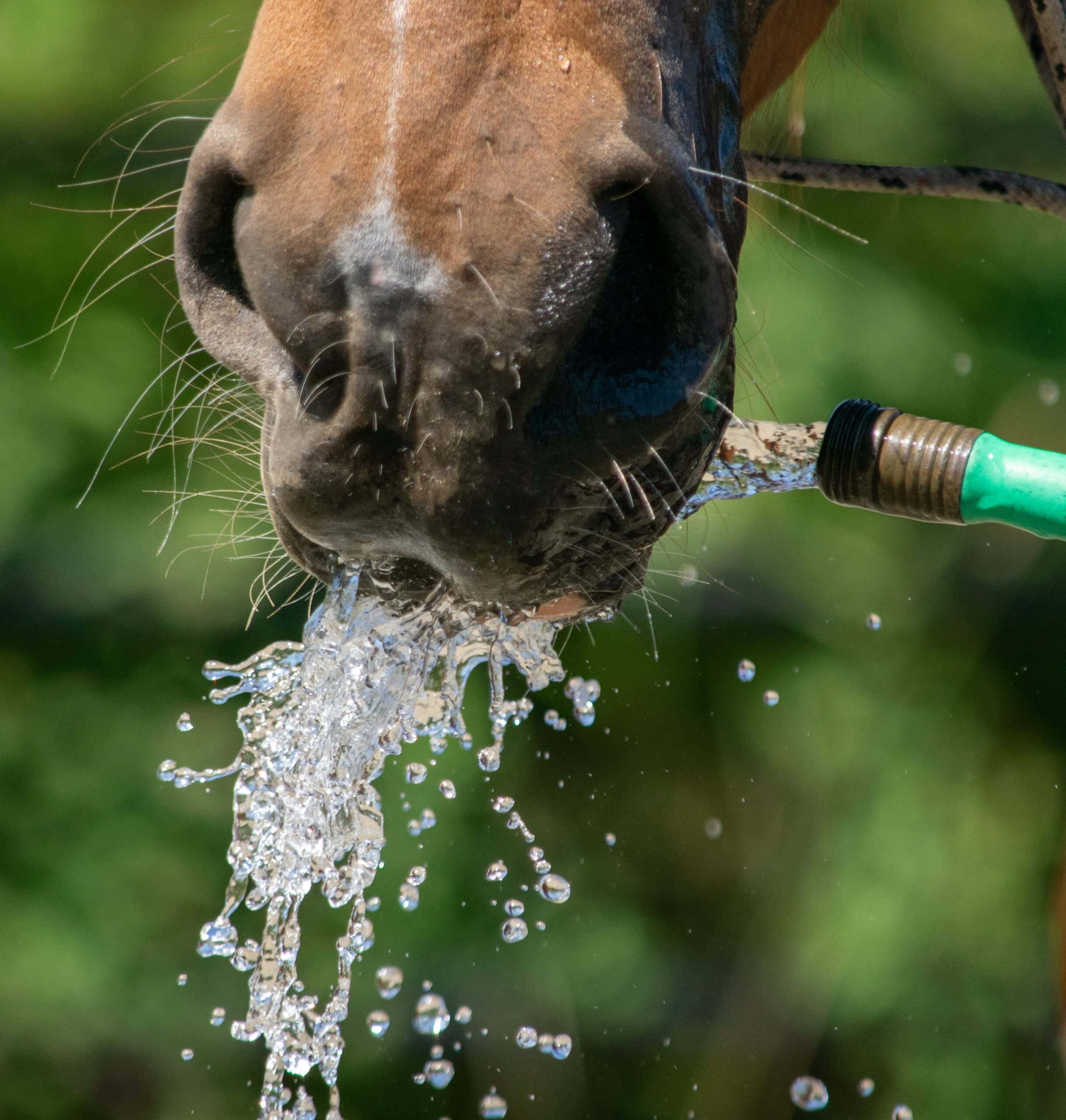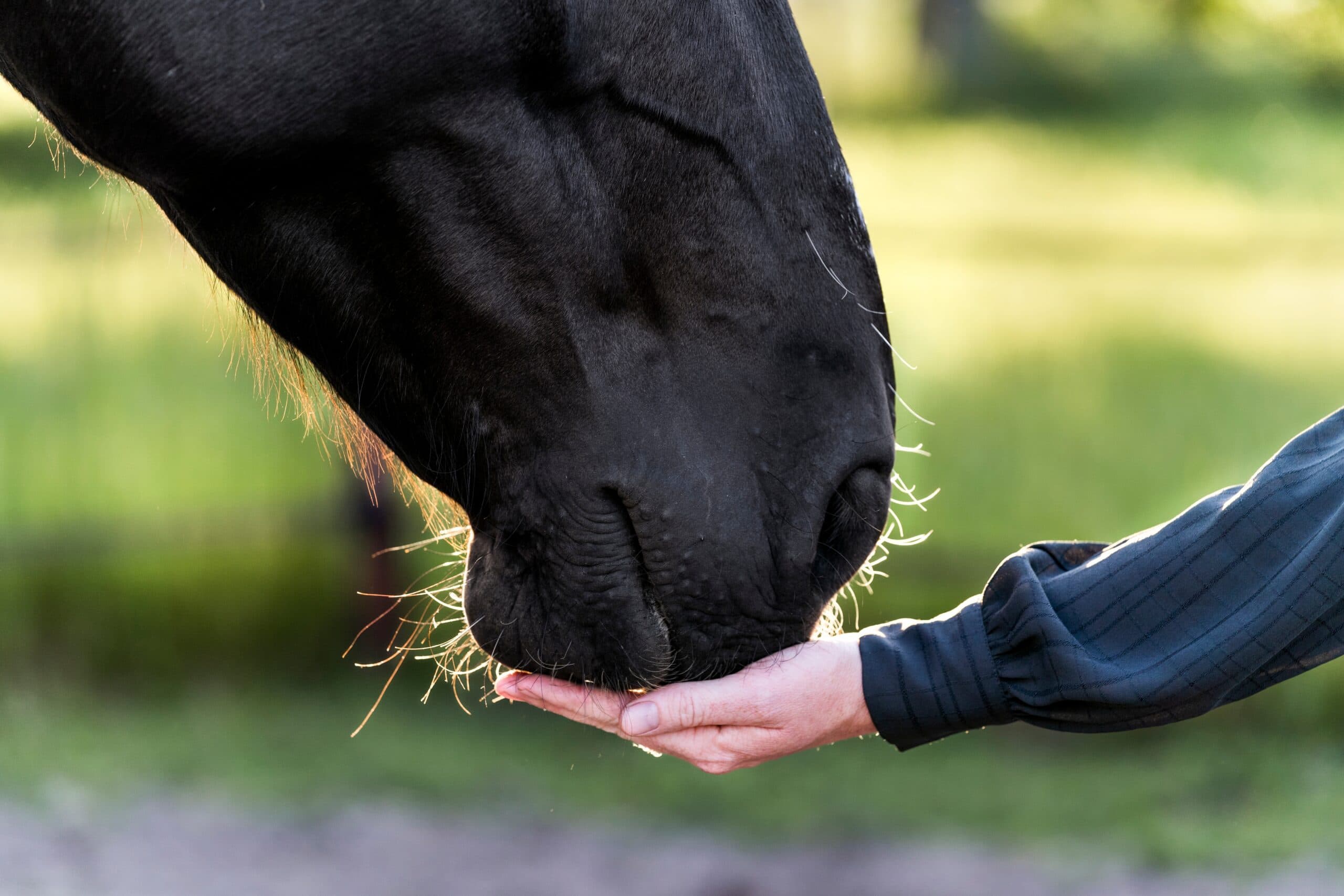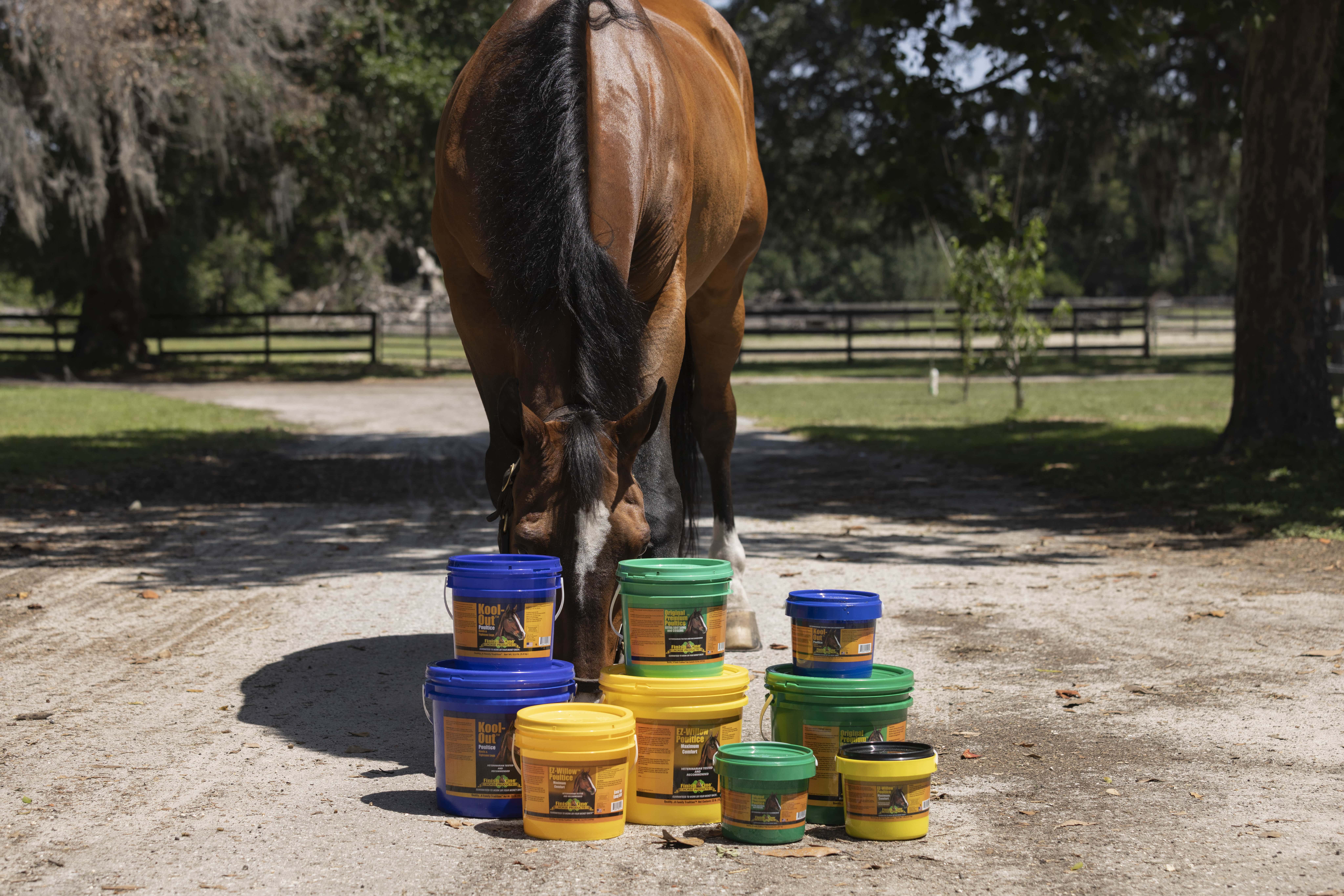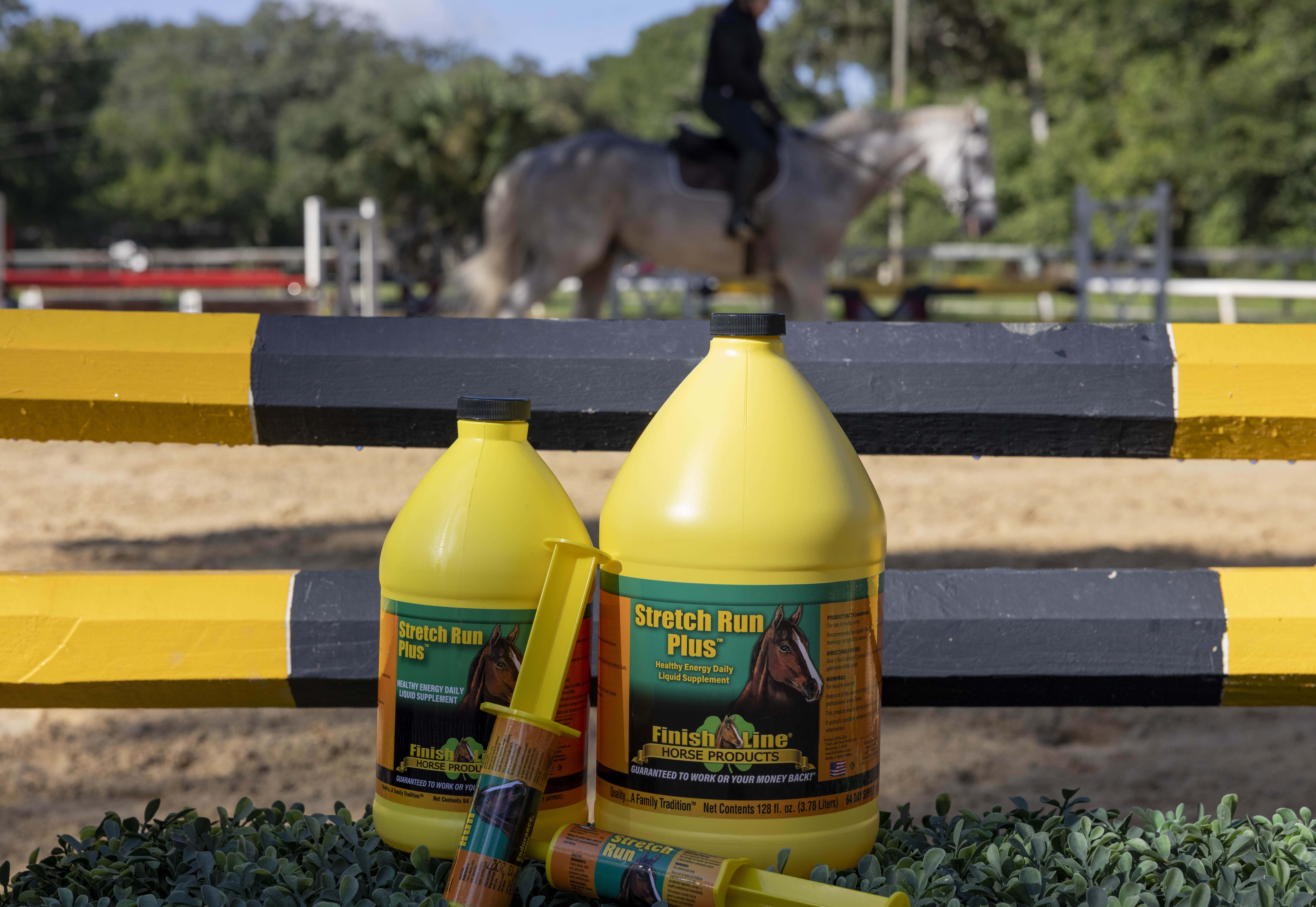Consider the following scenario: it’s a hot, humid day outside, and your training calendar has you scheduled to boost your horse’s exercise intensity. The two of you have slowly progressed through increasingly difficult workouts, and you’re confident your horse is up to the task. However, as the minutes go by, you realize your horse isn’t doing as well as it should. It’s acting lethargic, its heart is beating too fast and its coat is soaked with sweat.
Chances are your horse is suffering from dehydration. The intense physical activity combined with warm temperatures and high humidity cause your animal to sweat out an essential set of nutrients: electrolytes.
What are electrolytes?
“Electrolytes control a horse’s pH levels and transport fluids and nutrients.”
Electrolytes are a set of minerals which, when dissolved in water, split into electrically charged particles called ions. The charge allows them to send signals along the nervous system, which makes electrolytes vital for essential functions like breathing, digestion and so forth. Electrolytes also control a horse’s pH levels and transport fluids and nutrients into and out of the cell body. The positive ions are potassium, sodium, calcium and magnesium, while the negative ones are bicarbonate, chloride and phosphate. Without these crucial nutrients, your equine becomes dehydrated, its performance suffers and its metabolism may go haywire.
Thankfully, most horses get all the electrolytes they need from forage, pasture and salt licks. In fact, if a horse consumes too many electrolytes, it will expel the excess through urination. There are some instances, however, where a natural diet doesn’t provide enough of this essential nutrient.
When should I give electrolyte supplements?
A horse loses electrolytes any time it sweats. Sweating is essential to keep your horse from overheating, but a dramatic shift in electrolyte levels can be just as deadly as heat stroke. Usually, a horse is able to replenish its electrolyte level before dehydration becomes a problem, but high-performance athletes don’t get that opportunity. If they aren’t properly fueled with equine supplements beforehand, the intense activity depletes their electrolyte levels to dangerous amounts.
That said, competitive horses aren’t the only ones in need of additional electrolytes. Any equine that sweats a lot loses these vital minerals. According to Equus Magazine, your horse might benefit from electrolyte supplements under the following conditions:
- The weather is hot. Temperatures of 80 degrees or more cause unhealthy levels of sweating, according to Practical Horseman. Humidity increases the threat of dehydration. The moisture in the air prevents sweat from evaporating off your horse’s body, which makes it sweat more.
- Your horse is working beyond its normal capacity. You can see if your horse is past its limit if you see sweat along its chest, neck and side.
- Your horse has Cushing’s disease. Hirsutism – a thick, winter-like coat – is a common side effect. The thick hairs raise the horse’s body temperature, so it sweats excessively to cool down.
- You’re transporting your horse by trailer or air. Travel is very stressful and causes some horses to sweat so much that they lose weight. If your horse sweats excessively when traveling, make sure it has plenty of access to water and electrolytes. If you’re traveling to a competition, you may need to begin supplementing electrolytes a few days prior to departure depending on your arrival time and the start of the event.
“Electrolytes encourage horses to drink water when they wouldn’t otherwise.”
In addition, electrolytes encourage horses to drink water when they wouldn’t otherwise – for instance, if a horse is acting finicky about the water’s taste or isn’t thirsty now but needs to hydrate for later activity. Dr. Hal Schott, a professor at Michigan State University veterinary school, told TheHorse.com how one study found supplementing electrolytes increased water intake.
“When the horses competed without electrolyte supplementation, they lost about 50 pounds of fluid as sweat and replaced about half of this loss by drinking about 3 gallons (nearly 25 pounds) of water,” Dr. Schott told TheHorse.com. “However, when they ran with electrolyte supplementation dosed before and during the competition, the horses drank between 5 and 6 gallons (40-50 pounds of water), replacing nearly all of the fluid lost in sweat.”
Finding the right supplement
Equine electrolyte supplements come in different forms, each of which are appropriate for a different occasion. Powder supplements are great for animals that train hard on a consistent basis. These horses need daily electrolyte supplementation for adequate health. Daily supplements are also a good idea if you know your horse will sweat excessively in the near future – for instance, if you’re traveling or competing within the next week. Simply add the recommended amount of electrolytes to your horse’s feed as necessary.
Finish Line provides two great daily powder supplements: Apple-A-Day and Orange-A-Day. Each are designed to satisfy your horse’s taste buds and are free of sugar, fillers and artificial colors.
Alternatively, you can supplement your horse with a one-shot gel administered directly into the animal’s mouth via a syringe. Finish Line’s Electrocharge contains two doses of electrolytes to support healthy hydration levels.






